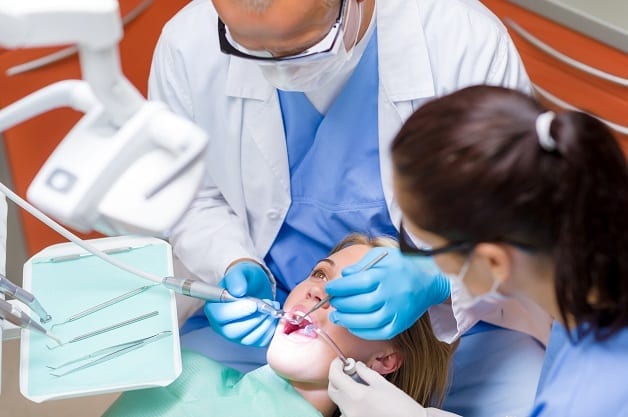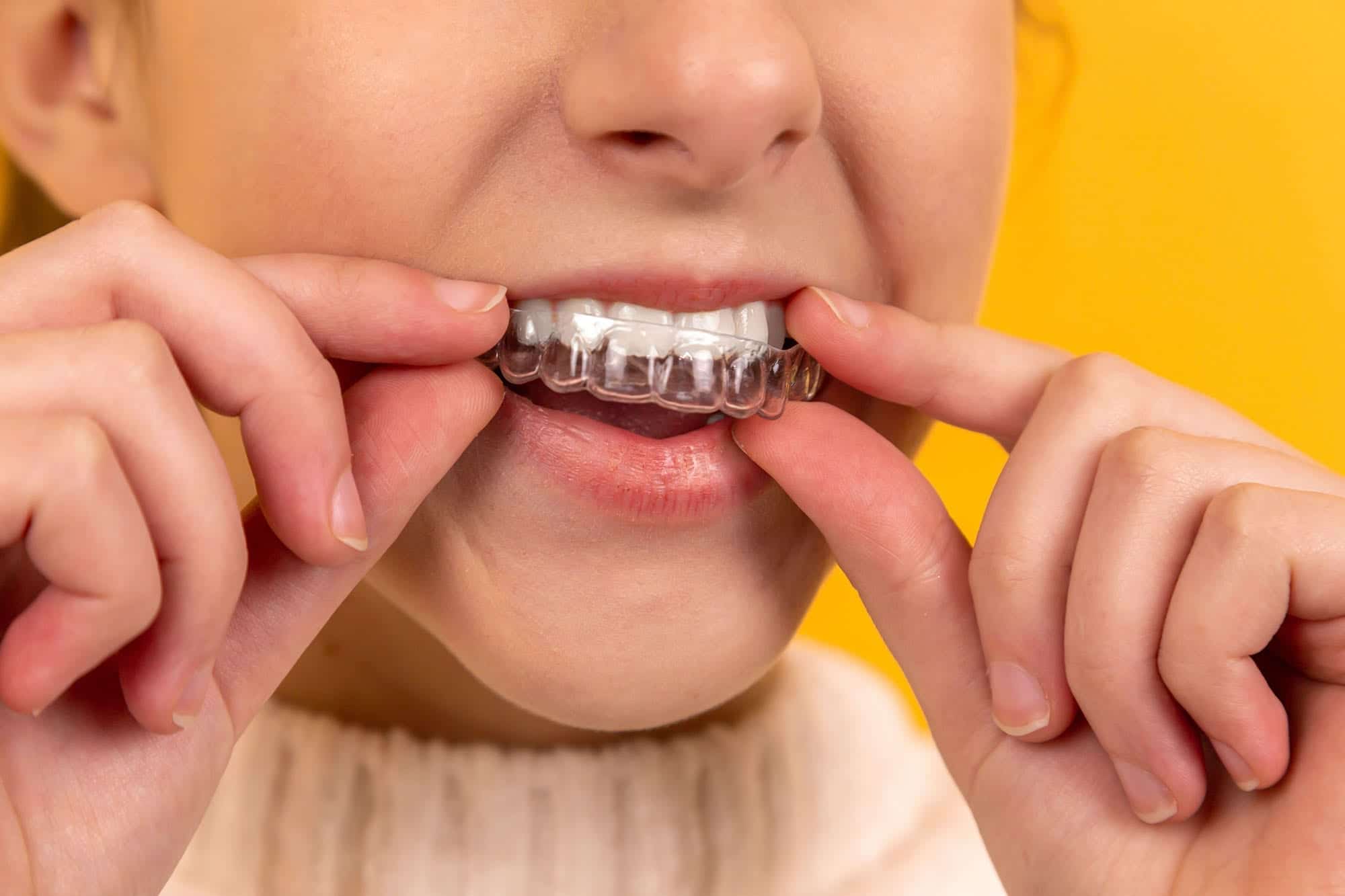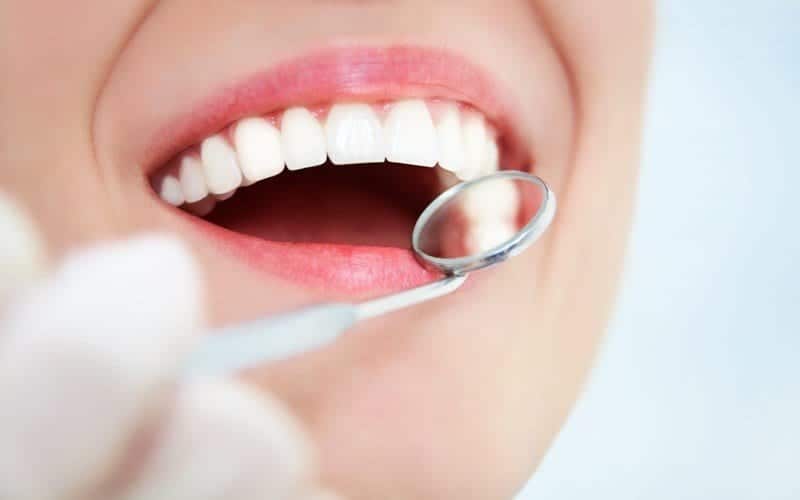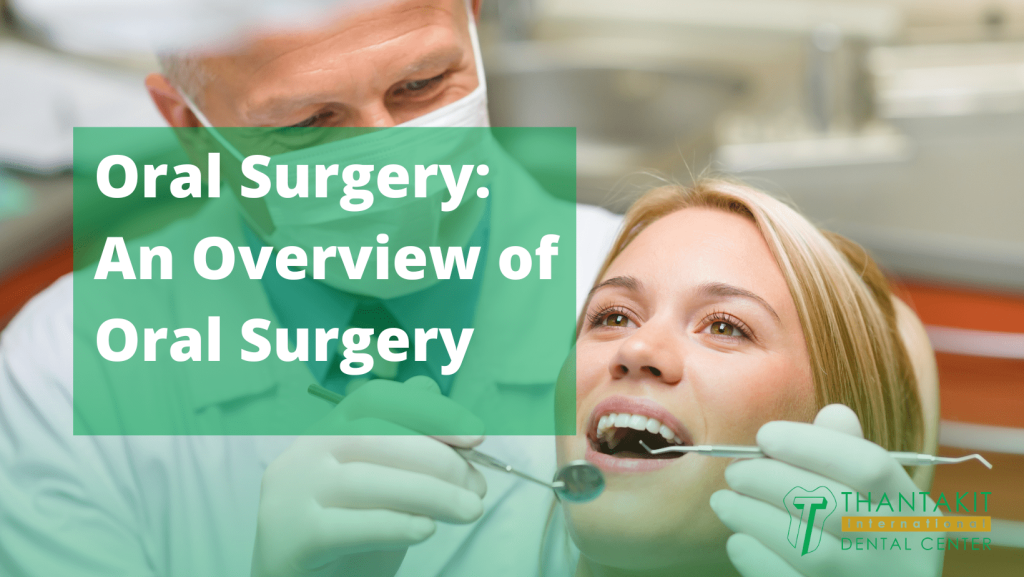Any surgery done on your surrounding oral and facial structures such as your jaw, gums, and even teeth can be considered oral surgery. However, most people consider those involving actual surgeons as surgical, as opposed to ordinary tooth extractions.
They’re done by an oral surgeon, a periodontist, or a maxillofacial surgeon depending on the specific oral area that requires surgery. They’re specialists who have studied and practiced the most advanced surgery procedures to fix oral issues.
Every year, you have several oral surgery procedures performed by oral surgeons of different specialties. Some are common and simple enough to be done by a general practitioner, like tooth extraction.
Page Contents
Wisdom Teeth Extractions
Wisdom tooth extractions involve removal of wisdom teeth. They differ from regular dental extractions because most modern human jaws lack the room to accommodate wisdom teeth, resulting in them becoming partially or totally impacted.
Wisdom teeth, by the way, are the four permanent molars found at the back of the mouth, from the top and bottom jaw.
-
What are Third Molars? Wisdom teeth are also known as third molars. They’re the last permanent teeth of yours to erupt or appear in the mouth, typically when you’re a teenager or young adult of 17 to 25 years of age. In other words, when you’ve crossed the threshold of the “age of wisdom”, hence their other name.
-
Do All People Develop Wisdom Teeth? No. Some people never do. They don’t need this type of surgery the same way not all people develop appendicitis. Others have the teeth erupt normally because their jaws are wide enough to accommodate the last set of molars.
-
What is Wisdom Teeth Impaction? It’s when the tooth erupts weirdly or with gum flaps because there’s not enough room in your jaw for the molars to erupt normally. Impacted teeth may erupt partially or remain below the gum, leading to pressure and pain.
-
Why Impacted Wisdom Teeth are Bad: If the molars lack room to grow or erupt, they result in pressure, pain, and potential infection from the resulting hard-to-clean gum flap. To avoid getting all sorts of dental complications, you need to pull out the errant wisdom tooth.
-
Why It Requires an Oral Surgeon: Wisdom teeth extraction might require a surgeon to cut through the gums or drill through bone in case the teeth is partially erupted or impacted, making it hard to pull it out using traditional means of dental extraction. Other times, a general practitioner dentist is enough to do the job as well.
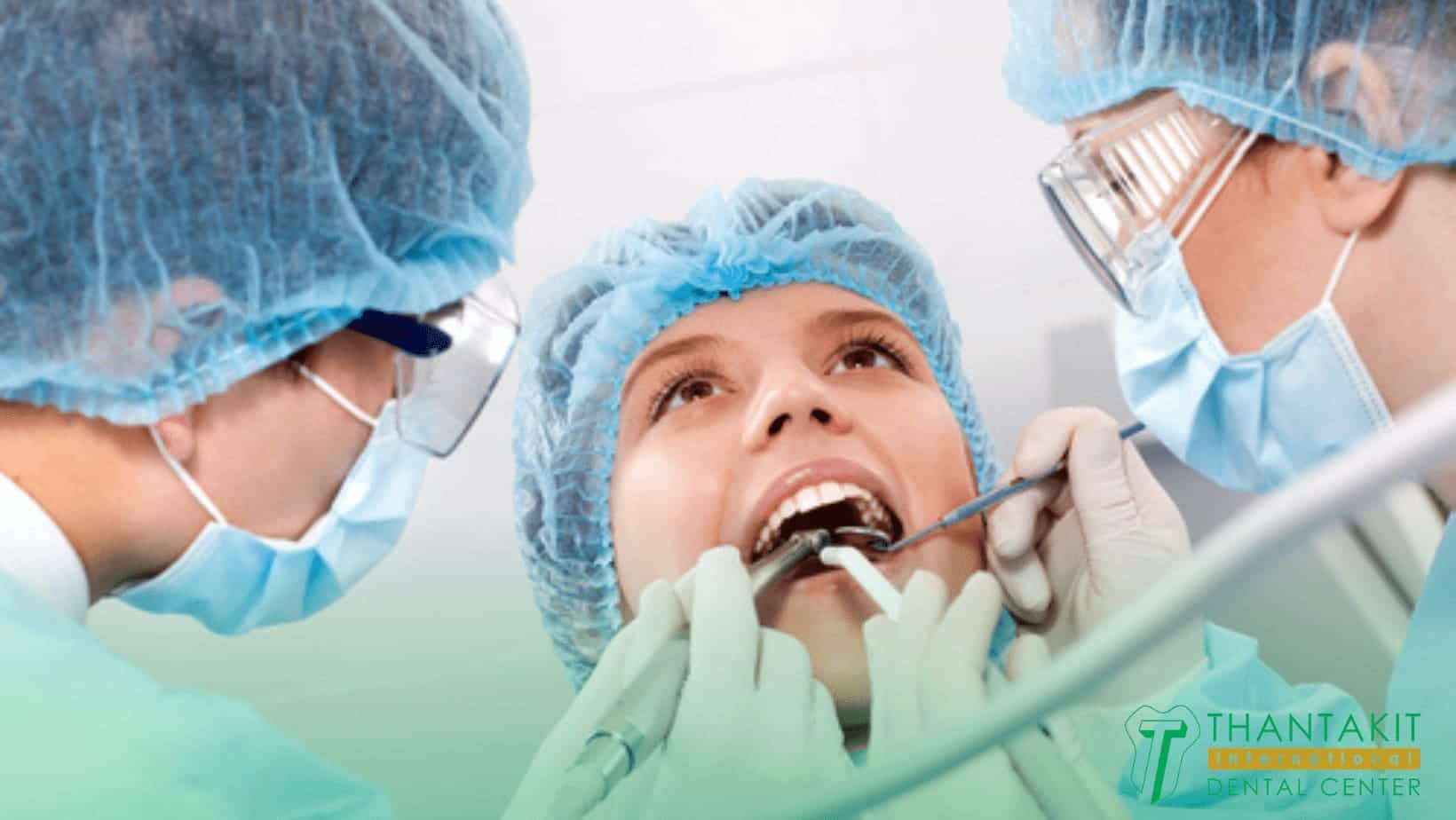
Jaw Surgery
Jaw surgery, also known as corrective jaw surgery or orthognathic surgery, corrects jaw bone irregularities and addresses skeletal abnormalities through jawbone drilling, grafting, and reshaping. Do you lack a chin? Or do you have too much chin?
Most issues with dental misalignment can be addressed by wearing braces or undergoing the dentistry procedure known as orthodontics. For anything that orthodontics alone won’t fix, you can try to fix with orthognathic surgery instead.
-
What Is Jaw Surgery For? This specific surgery type can fix the functionality and aesthetics of your jawbones. It’s capable of chewing and talking functionality improvements. It even addresses imbalances of the face and corrects misalignments for good measure.
-
What about Orthodontics? Orthodontics is best done when you’re a developing child to teenager. Jaw surgery might instead be called for with extreme jaw issues beyond the ages of 17 to 21 years old for males or the ages of 14 to 16 years of age for females. Even then, the jaw is also prepped with orthodontics.
-
The Jaw Surgery and Braces Combo: Orthodontics is usually used in order to prep your jaws for surgery. You’ll be treated with braces first then you’ll get jaw surgery. This is then followed by a recovery period and further orthodontics as required.
-
Jaw Realignment: Another common reason to get orthognathic surgery is to fix your bite, teeth, and jaw alignment. You could have an underbite (the lower jaw juts forward), an overbite (the upper jaw juts forward), or scissor bite (the jaws are misaligned like the blades of a pair of scissors).
-
Misalignment by Accident: Aside from being born with a certain bite you wish to correct, you can also end up with a misaligned jaw due to car accidents and the like. This procedure can align your upper and low jaw through a series of procedures.
-
TMJ Dysfunction: If you’re suffering from temporomandibular joint (TMJ) disorder or dysfunction (TMD), you can use orthognathic surgery to ease the pain. This is because TMD typically originates from jaw bone irregularities, abnormalities, or damage, resulting in unnecessary joint pressure.
The face (maxillofacial) or jaw (orthognathic) surgeon can work in tandem with the orthodontist for the best course of action when it comes to your jaw surgery and correction treatment procedure.
Jaw surgery benefits include both cosmetic and functional. It may also assist you on the following.
-
Improve overall chewing.
-
Make it easier to bite and eat.
-
Provide obstructive sleep apnea relief.
-
Repair birth defects and facial injuries.
-
Correct asymmetry of the face or facial imbalance.
-
Minimize excessive breakdown or wearing of teeth.
-
Correct problems with speech and issues with swallowing.
-
Improve your ability to fully close your lips in a comfortable fashion.
-
Relieve TMJ disorders or TMDs as well as other related jaw complications.
-
Fix your bite fit to improve jaw closure issues, like when your molars touch but your front teeth don’t (an open bite).
-
Fixing issues like open bites, crossbites or scissor bites, underbites, overbites, and having a small chin (bone grafting to add a more prominent chin).
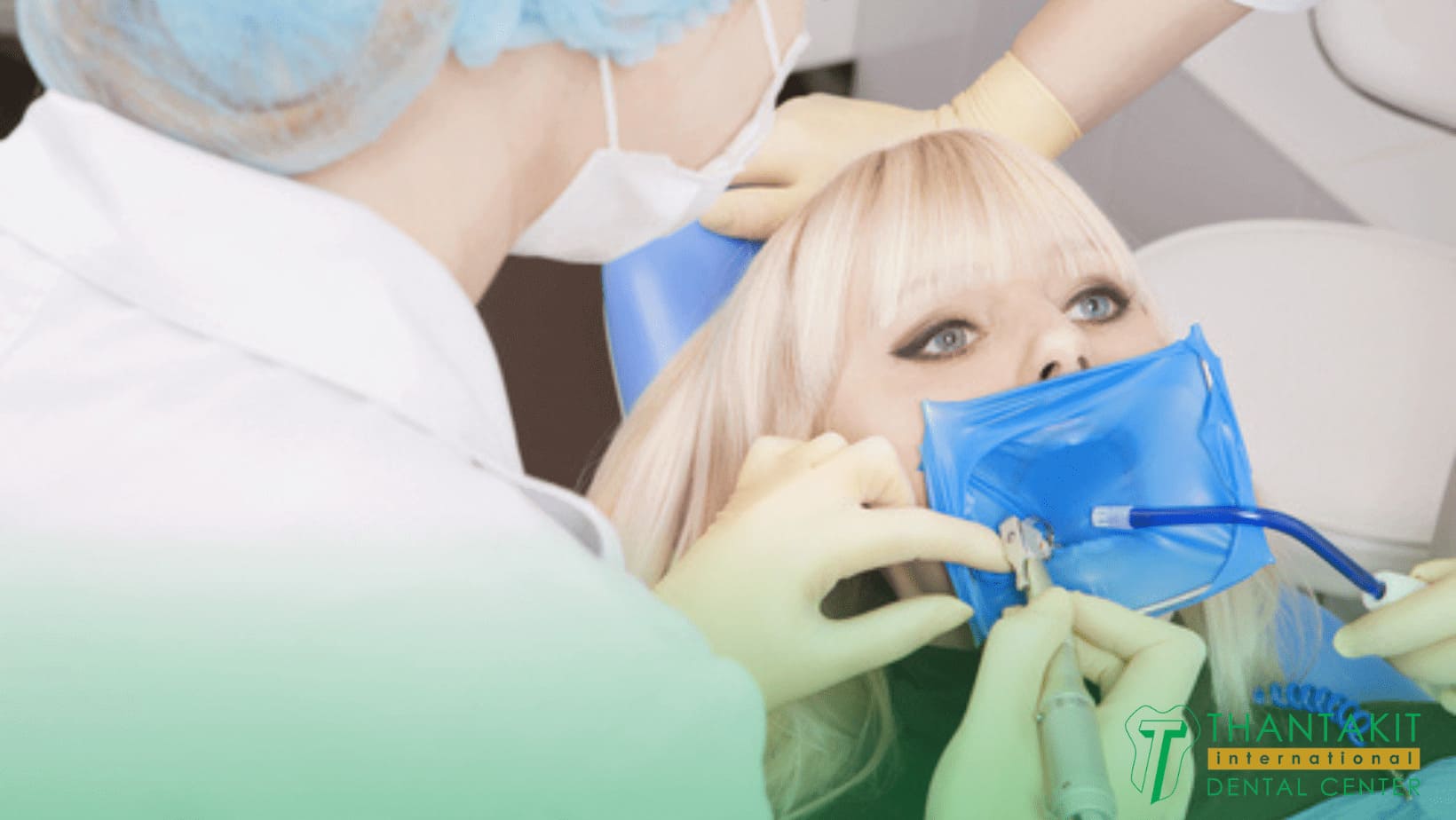
Ordinary Tooth Extraction
Tooth removal or extraction is the most common oral surgery type. Extracting teeth is recommended if it’s severely damaged or decayed. Loose teeth suffering from gum or periodontal disease, dental trauma, and so forth should also be extracted.
-
Tooth Extraction versus Wisdom Tooth Extraction: Impacted wisdom teeth require more gum cutting while simple teeth extraction mostly involves pulling the errant tooth itself. Some extractions are done to prepare you for placement of prosthetic devices like dentures and implants.
-
Saving the Natural Tooth is the Priority: Many dentists want to save your natural teeth as much as possible, so they recommend fillings or crowns instead of extractions. However, sometimes they have no choice. It’s usually either extraction or a root canal (endodontic) procedure.
-
Preventative Wisdom Tooth Extraction: There are dentists and surgeons who recommend removing the wisdom tooth even if impaction hasn’t occurred or is currently causing problems in order to avoid future dental complications to develop. It helps reduce your risk for bone loss, cavities, and infection risk.
Dental Bone Graft
If your jaw has suffered bone loss, you can fix it with a dental bone graft. You can also undergo this procedure to assist other procedures, such as requiring more jawbone to support the placement of a dental implant.
-
A Complete Set of Teeth Keeps the Jawbone Healthy: A healthy set of natural teeth is what stimulates the nerves in the jaw to send signals to your brain to order your body to deliver nutrients like calcium to your jaw, which keeps it strong and healthy.
-
Missing Teeth Can Lead to Bone Loss: If you’ve been missing teeth for a long time, your jaw can deteriorate because of a lack of teeth nerves to stimulate jaw nerves. Periodontal or advanced gum disease can also cause the bone around the teeth to erode along with the periodontal tissue.
-
Bone Graft Benefits: The most obvious benefits of a dental bone graft to the jaw is to stave off bone deterioration. It restores density and volume to the jawbone. Like reconstructive surgery. If a patient lacks such density in the first place, the bone graft can serve as his jaw correction surgery to improve his chin aesthetics.
-
For Use of Dental Implants: A dental implant is a prosthetic tooth root that’s screwed right into the jawbone so that your crowns feel like natural teeth connected directly to the jaw. A bone graft might be called for if the natural jawbone lacks the density needed for dental implant placement.
-
Periodontal Surgery: Some gum graft surgery also calls for bone grafts. This is because periodontal disease can cause jawbone loss along with tooth erosion and acute gum inflammation. The bone graft can reduce tooth looseness and provide a solid foundation for your teeth to remain healthy and strong.
-
Source of the Bone Material: You can get material for the bone graft from your own body or from what’s known as a human or animal tissue bank. You can also avail of synthetic bone graft material for good measure.
-
Acts like a Healing Scaffold: After bone graft placement, it offers a space for your body to heal. The graft can serve as a scaffold for which bone tissue growth is encouraged. Bone reinforcement by the body itself is your best case scenario.

Dental Implants
Dental implants are metal studs with screws on their ends that get surgically embedded unto your jawbone itself to simulate how natural teeth are attached to the bone, thus it requires surgery to cut through the gums and gain access to the bone.
-
Serves as a Crown or Bridge Anchor or Tooth Root: Instead of using adjacent teeth to serve as the anchor for a bridge or a set of crowns, you can effectively replace missing teeth by using the surgically implanted dental implant as your base or anchor instead, making your crowns feel like natural teeth.
-
Helps Dentures Look and Work like Natural Teeth: The procedure doesn’t only improve your smile’s appearance. It also improves the function of your prosthetic teeth or dentures. Instead of them being detachable, they’re now akin to natural teeth anchored down to the bone.
-
The Long-Lasting Teeth Replacement Option: Although at times prohibitively expensive, the dental implant provides you with the most reliable and longest-lasting teeth replacement option out there, with its threaded screw posts made of medical-grade zirconia or titanium.
After your jaw and gums have healed sufficiently, you can use the metal posts to restore your bite by plugging in abutment and replaceable dental crowns, bridges, or dentures over your missing teeth.
Periodontal Surgery
If you have moderate (gingivitis) to severe (periodontitis) gum disease, your dentist might recommend you to a gum specialist in order to perform gum disease treatment and periodontal surgery. This typically involves grafting gum material to receded gums.
During this surgical procedure, the gum surgeon will make cuts along the gum line, temporarily moving the tissue away. He’ll then clean your teeth roots to flush away accumulated plaque and bacteria. Afterwards, the gum is placed back or additional gum grafts are added to bring back your receded gum line to its natural healthier position.
Sleep Apnea Surgery and Cleft Lip Repair
Obstructive sleep apnea is when the tissues at the back of your throat fall back, thus blocking your airway when sleeping and leaving you practically choking. You can treat the issue with a CPAP machine or oral appliance therapy. Otherwise, surgical intervention might be called for.
As for cleft lip and palate repair, you might need to do surgery on babies with partially formed facial structures that result in cleft lips and missing palates. This requires the assistance of oral and maxillofacial surgeons to restore normal eating functions and help develop proper speech patterns later on as the baby grows.
Procedure Details
Here are the details of getting oral surgery.
-
What are the Risks or Complications of Oral Surgery? As is common with any surgical procedure, the complications linked with oral surgery include the following.
- Infection
- A feeling of numbness.
- Issues with your sinuses.
- Adjacent teeth damage or injury.
- Fragments left of your tooth root.
- Dry socket (when the blood clotting process gets disturbed following a tooth extraction, leading to the formation of a painful blood clot that usually lasts about a week).
-
What is Oral Surgery? Ostensibly, oral surgery refers to surgical procedures done unto oral structures such as your jaws, gums, and teeth. This covers things like dental extractions, dental implants, gum grafts, wisdom tooth extractions, and jaw surgeries.
Oral surgery of the jaw, teeth, gums, or facial/oral structures includes a wide range of processes, which includes wisdom teeth extractions (requiring cutting gum and bone), corrective jaw surgery, and even periodontal gum grafts.
-
Why Is Oral Surgery Performed? Oral surgery might be done for several reasons. Your dentist might call for it if you have the following:
- Oral cancer.
- Sleep apnea.
- Gum disease.
- Missing teeth.
- Impacted teeth.
- Badly broken teeth.
- Bone loss in your jaw.
- Extensive tooth decay.
- Temporomandibular joint disorders (TMD).
- Benign oral pathology (noncancerous lumps or bumps).
Your complication risks can be minimized to the utmost by following dentist-recommended post-operation guidelines. Also, don’t forget to take your medications as instructed. If symptoms persist, consult your dentist for further advice.
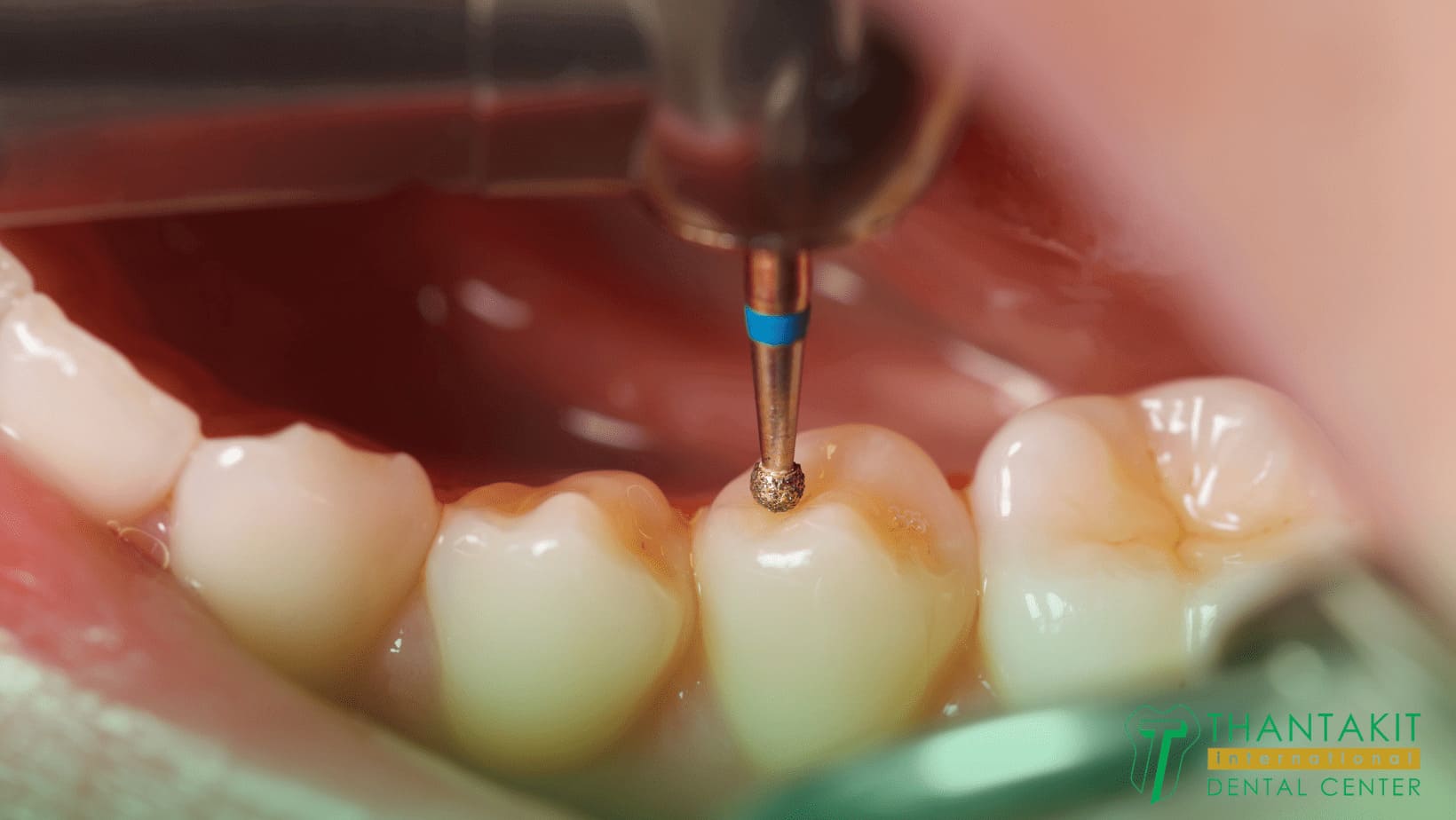
The Bottom Line
Long story short, the average medical insurance will cover most oral surgeries, but some might not be.
Most oral surgery procedures belong to “Dental Benefits” as far as your medical insurance is concerned. For example, insurance typically covers dental hospital oral surgery for people who’ve been involved in accidents.
Read up on your coverage details for “minor” oral surgeries like wisdom tooth surgery and the like. Policies and plans vary from one insurance provider to another. Ask your doctor and an insurance agent for more details.
Thantakit International Dental Center is Thailand’s longest established dental center. Situated in Bangkok, our clinic is renowned across the world as a destination for world-class dentistry, with most of our patients flying to us from Australia.
Please contact us today and get a FREE dental consultation.



